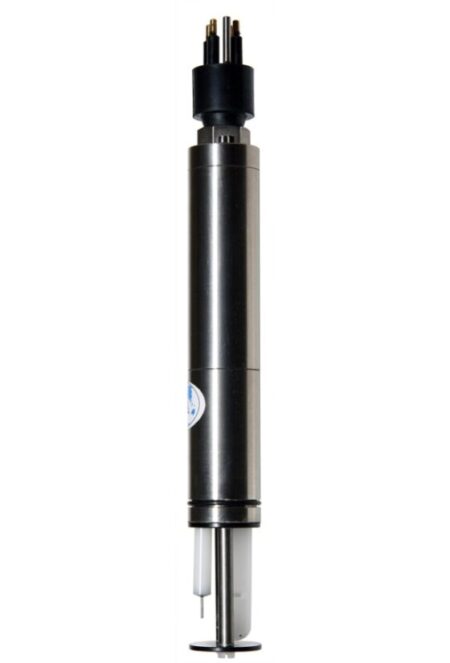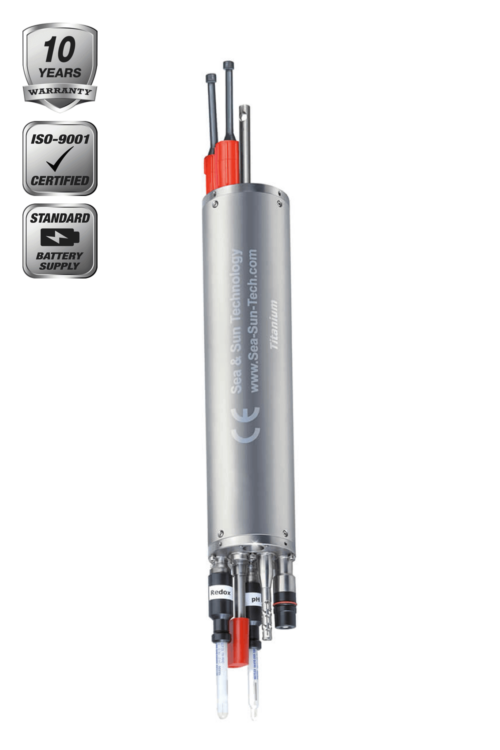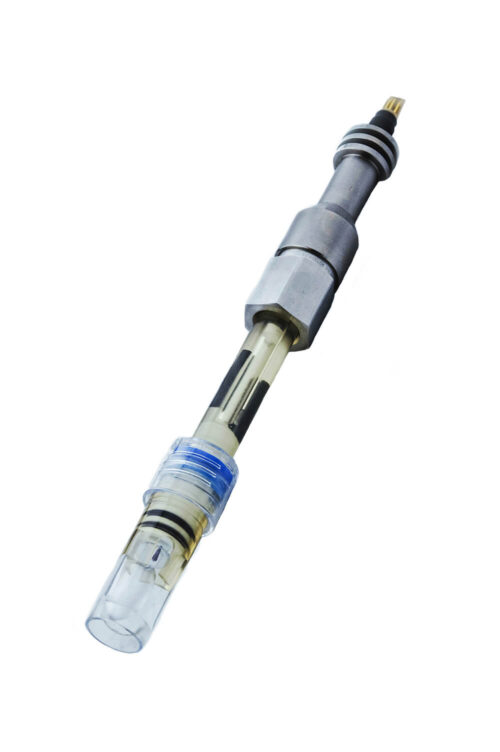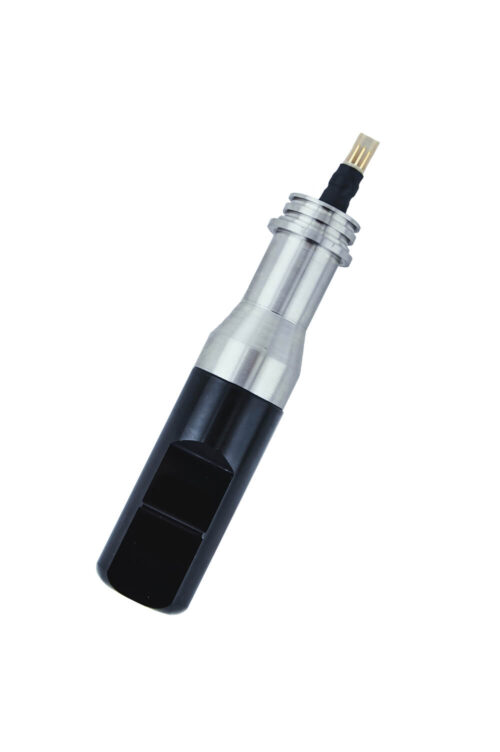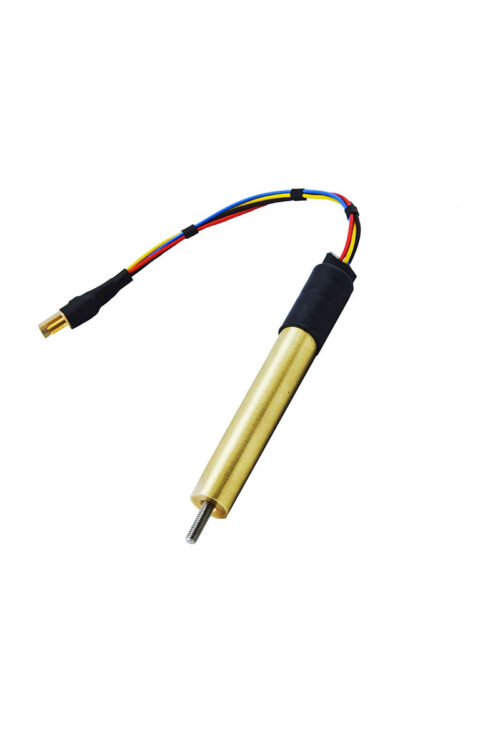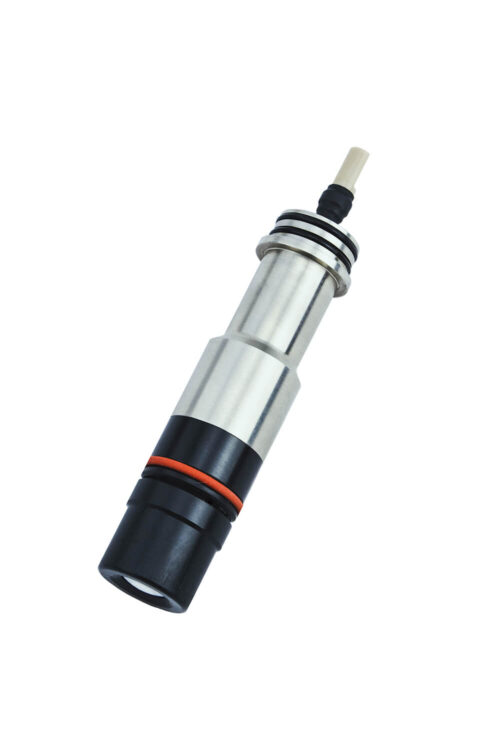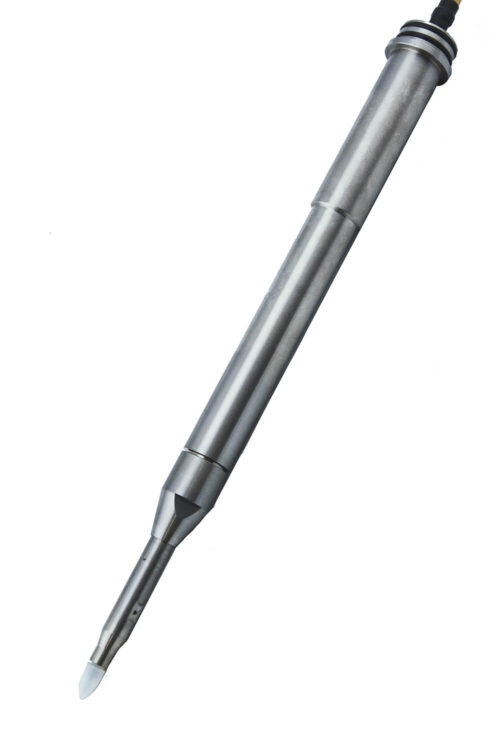max. depth 6,000m
The combined-redox sensor consists of a reference electrode and a noble metal electrode in one housing. To realize accurate measurements in the deep sea, a double diaphragm for the reference electrode is used to avoid problems with the signal stability during pressure changes. The interface of reference electrode and sample is realized by means of a hole diaphragm. The reference electrode consists of a KCl containing gel with a special built-in second diaphragm. Behind the second diaphragm is the Ag/AgCl-reference system located in a potassium chloride solution. The sensor for the in-situ determination of redox is available as deep sea version (up to 600 bar) without integrated temperature sensor.
The Redox-sensor is supplied with a storage solution in a wetting cap. The cap must always be placed beneath the sensor and contain sufficient storage solution to store the sensor when not in use. The storage solution should be a 3 M KCl solution that prevents the reference electrode from drying out.
The sensor needs replacement after a lifespan of approximately 12 months (depending on the measuring environment).
Technical data:
- Pressure resistance: 6,000 dbar
- Measuring range: ± 2,000 mV
- Accuracy: ± 2 mV
- Resolution: 0.1 mV
- Dimensions: 30 mm Ø, 250 mm total length
- Feature: H2S resistant
- Used for: CTD90M

